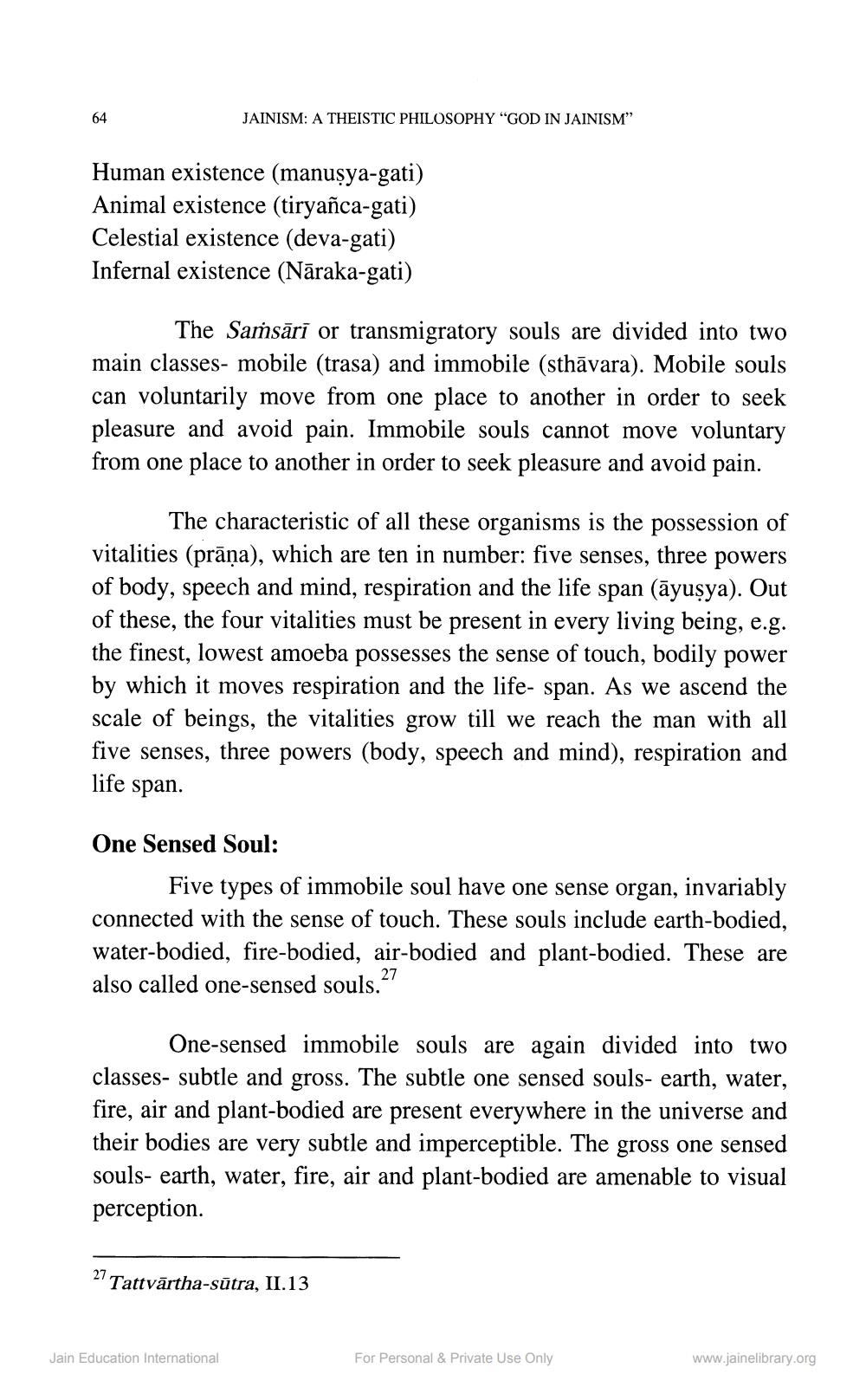________________
JAINISM: A THEISTIC PHILOSOPHY "GOD IN JAINISM"
Human existence (manusya-gati) Animal existence (tiryañca-gati) Celestial existence (deva-gati) Infernal existence (Nāraka-gati)
The Saṁsārī or transmigratory souls are divided into two main classes- mobile (trasa) and immobile (sthāvara). Mobile souls can voluntarily move from one place to another in order to seek pleasure and avoid pain. Immobile souls cannot move voluntary from one place to another in order to seek pleasure and avoid pain.
The characteristic of all these organisms is the possession of vitalities (prāņa), which are ten in number: five senses, three powers of body, speech and mind, respiration and the life span (āyusya). Out of these, the four vitalities must be present in every living being, e.g. the finest, lowest amoeba possesses the sense of touch, bodily power by which it moves respiration and the life- span. As we ascend the scale of beings, the vitalities grow till we reach the man with all five senses, three powers (body, speech and mind), respiration and
life span.
One Sensed Soul:
Five types of immobile soul have one sense organ, invariably connected with the sense of touch. These souls include earth-bodied, water-bodied, fire-bodied, air-bodied and plant-bodied. These are also called one-sensed souls.'
One-sensed immobile souls are again divided into two classes- subtle and gross. The subtle one sensed souls- earth, water, fire, air and plant-bodied are present everywhere in the universe and their bodies are very subtle and imperceptible. The gross one sensed souls- earth, water, fire, air and plant-bodied are amenable to visual perception.
21 Tattvārtha-sūtra, II.13
Jain Education International
For Personal & Private Use Only
www.jainelibrary.org




